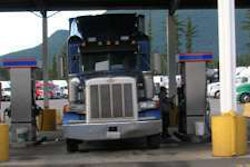Kentucky’s attorney general has accused Marathon Petroleum Co. of fuel price gouging, while officials in other states warily eye the issue.
Kentucky AG Jack Conway asked for a temporary injunction against Marathon May 13, alleging the company illegally raised wholesale fuel prices during an emergency. The pleading filed in Franklin Circuit Court accuses company officials of violating Kentucky’s price-gouging statute during a state of emergency declared April 26 because of flooding.
Conway asked the court to require Marathon to lower wholesale prices in Kentucky to the price charged on April 25. His filing was included in an ongoing case against the company and its subsidiary, Speedway, for alleged price-gouging violations following Hurricanes Katrina and Rita in 2005.
Marathon spokesman Shane Pochard said the company had again “been singled out for
litigation by a Kentucky attorney general on the eve of a primary election in which the attorney general is a candidate.”
Pochard said the allegations lack merit and Marathon intended “to vigorously defend this latest move by Attorney General Conway, just as we have defended similar charges in the
past.”
Conway said Kentucky law permits suppliers to increase prices only if there has been a hike in the supplier’s costs, but he believes company’s costs do not justify the price increases.
In 2008, his office began investigating how wholesale fuel prices affected Louisville market prices. Marathon’s 1996 acquisition of Ashland Oil reduced fuel market competition in Kentucky, he said. Conway referred that antitrust investigation to the federal Oil and Gas Price Fraud Working Group, which investigates allegations of fraud and market manipulation in the oil and petroleum industry.
U.S. Attorney General Eric Holder announced the group’s formation April 21 to safeguard against oil and fuel price fraud or misrepresentation that violates state or federal laws. The group will also evaluate commodities markets, examine investor practices, supply and demand factors and the role of speculators and index traders in oil futures markets.
Alabama’s AG said tornadoes resulted in a statewide state of emergency April 28. A price 25 percent or more above the average price charged locally within the last 30 days is a prima facie case of unconscionable pricing, unless the increase can be attributed to reasonable costs.
The fine is up to $1,000 per violation, and those found guilty may be prohibited from doing business in Alabama.
The day before, Indiana Attorney General Greg Zoeller said market factors caused significant price increases at some retail stations investigated. A review remains pending on the Indianapolis Speedway station on Southport Road and the Speedway near North 22nd Street and Wabash Avenue in Terre Haute.
Massachusetts AG Martha Coakley issued an April 22 warning to petroleum retailers against violations of the state price gouging law. Massachusetts allows retail fuel stations to discount prices for cash customers.
However, stations are not permitted to surcharge consumers paying with a credit card, although they may impose a minimum amount for credit card transactions. Fuel stations should advertise the higher price conspicuously.










